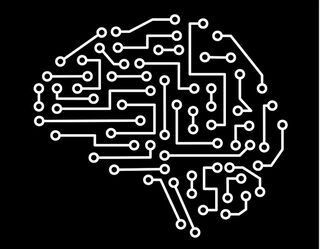Depression
AI Identifies Key Predictors of Depression in Older Adults
Identifying risk factors and protective factors for depression.
Posted May 17, 2022 Reviewed by Abigail Fagan
Key points
- A study used machine learning to compare social, health, functional, and cognitive variables as risk or protective factors for depression.
- The strongest risk factors were self-reported social isolation and poor health.
- It may be valuable to screen for depression among older adults with those two risk factors.

Depression is a leading cause of disability globally. An estimated 300 million people worldwide—roughly 4.4 percent of the global population—are suffering from this common mental health disorder, according to a World Health Organization report. A new study applied artificial intelligence (AI) machine learning to identify both risk and protective factors for depression in middle-aged to older adults.
“To our knowledge, this is the first large, multi-country study to use machine learning to compare a broad range of social, health, functional, and cognitive variables as concurrent risk/protective factors for depression in middle-aged and older adults—and with analyses conducted independently for women and men,” wrote the researchers affiliated with Colorado State University, University of Zurich in Switzerland, and the University of Colorado at Colorado Springs.
Depression, also known as major depressive disorder or clinical depression, is a serious mood disorder that causes a persistent feeling of sadness and loss of interest that may interfere with normal daily life activities.
Symptoms of depression may vary from person to person and can include feelings of sadness, hopelessness, emptiness, tearfulness, irritability, angry outbursts, loss of interest or pleasure in normal activities, insomnia, excessive sleeping, lack of energy, changes in appetite and eating habits, anxiety, restlessness, agitation, slowed thinking, speaking or body movements, feelings of worthlessness or guilt, difficulty in concentrating, thinking, making decisions, impaired memory, unexplained physical problems such as headaches, and suicidal thoughts, among other symptoms.
According to the researchers, not only does depression reduce quality of life among older adults, but also depression has been linked with dementia and increased risk for mortality.
“The high prevalence of depression in a growing aging population represents a critical public health issue,” the researchers wrote.
The research team posits that AI machine learning may be more reliable than statistical techniques for several reasons. Unlike conventional statistical methods, AI may lead to higher prediction accuracy because it does not create distributional assumptions nor require specifying the complex interactions and nonlinear effects beforehand.
For this study, 56 risk factors and protective factors were evaluated using random forest analysis, a method of AI machine learning. Random forest is a common type of machine learning algorithm that uses a combination of multiple decision trees to reach a result for classification, regression, and other tasks.
The 56 factors spanned a number of categories including demographics, education level, employment status, marital status, number of people in the household, family, social network, interpersonal transactions, health and functional limitations, cognition, and mental health.
The AI algorithm identified the strongest risk factors as self-rated social isolation and poor health.
“Middle-aged and older adults who report being socially isolated and/or in poor general health are at nearly twice the elevated risk for depression,” the researchers reported. “From a public health perspective, these results provide evidence of the importance of screening for depression risk within this age demographic during routine medical visits (i.e., when assessing general health status).”
Copyright 2022 Cami Rosso All rights reserved.


